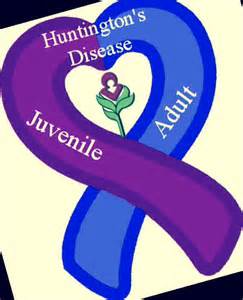
Huntington's disease (HD) is a neurodegenerative genetic disorder that affects muscle coordination and leads to mental decline and behavioral symptoms.
Huntington’s disease
It is an autosomal dominant inherited disorder caused by the abnormality of the Huntington gene on (expansion of a CAG tri-nucleotide repeat that codes for a polyglutamine tract) chromosome. An autosomal recessive form may also occur.
Huntington’s disease is characterized by progressive chorea and dementia that usually begin in adulthood. Pharmacologic studies indicate that chorea results from functional over activity in dopaminergic nigrostriatal pathways; perhaps because of increased responsiveness of postsynaptic dopamine receptors or deficiency of a neurotransmitter that normally antagonizes dopamine. The development of chorea seems to be related to an imbalance of dopamine, acetylcholine, GABA, and perhaps other neurotransmitters in the basal ganglia.
Drugs that impair dopaminergic neurotransmission, either by depleting central monoamines (Eg, Reserpine, tetrabenazine) or by blocking dopamine receptors (Eg, butyrophenones, phenothiazines), often alleviate chorea, whereas dopamine-like drugs such as levodopa tend to exacerbate it. Both GABA and the enzyme (glutamic acid decarboxylase) concerned with its synthesis are markedly reduced in the basal ganglia of patients with Huntington’s disease, and GABA receptors are usually implicated in inhibitory pathways. There is also a significant decline in concentration of choline acetyl-transferase, the enzyme responsible for synthesizing acetylcholine, in the basal ganglia of these patients.
Reserpine depletes cerebral dopamine by preventing intra-neuronal storage. A daily dose of 2–5 mg is often effective in suppressing abnormal movements it is introduced in low doses (Eg, 0.25 mg daily), and the daily dose is then built up gradually (Eg, by 0.25 mg every week) until benefit occurs or adverse effects become troublesome.
Adverse effects: Depression, diarrhea, hypotension, sedation, and nasal congestion. Tetrabenazine (12.5–50 mg orally three times daily) resembles Reserpine in depleting cerebral dopamine and has less troublesome adverse effects.
Treatment with phenothiazines and butyrophenones may also be helpful in the postsynaptic dopamine receptor blockers.
Haloperidol is started in a small dose (1 mg twice daily) and increased every 4 days depending on the response. If haloperidol is not helpful, treatment with increasing doses of perphenazine up to a total of about 20 mg daily sometimes helps
Olanzapine may also be useful; the dose varies with the patient, but 10 mg daily is often sufficient, although doses as high as 30 mg daily are sometimes required. Selective serotonin reuptake inhibitors may reduce depression, aggression, and agitation.
Neuro-degeneration, mental symptoms, reserpine